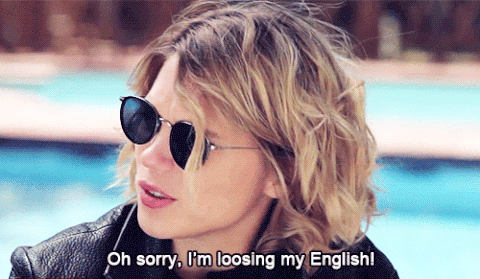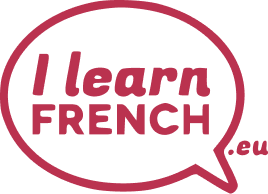If you really want to speak French, why not consider learning French in Brussels?
“Bruxelles ma belle”… it is so easy to fall in love with Brussels, with its paved streets and hidden architectural gems. In addition to being beautiful and the most cosmopolitan city after Dubai, Brussels is also a polyglot city where the French language is omnipresent. Thanks to its internationality, you certainly can survive in Brussels without speaking French or Dutch. English would certainly be enough. But ….. as you are already there, why not try to act “As in Rome” and learn French in Brussels.

Source: Brussels is yours
Alors pourquoi apprendre le français à Bruxelles est-il une bonne idée ?
Il est facile de pratiquer et de parler français avec les locaux.
Les Belges sont très sympathiques et décontractés, et ils sont toujours ravis d’engager la conversation avec des inconnus. Vous pouvez facilement discuter avec quelqu’un en attendant le bus ou en faisant la file d’attente à la poste (mais je vous déconseille fortement de vous occuper des démarches administratives). Oui, parler à un parfait inconnu de la météo ou du plat que vous allez commander est tout à fait normal et même fortement recommandé. À Bruxelles, vous ne recevez jamais le regard du genre « mais qu’est-ce que tu fais à moi ? », JAMAIS. Un atout indéniable pour apprendre le français à Bruxelles.

Le français est l’une des langues officielles du pays, avec le néerlandais et l’allemand.
Où que vous alliez à Bruxelles, vous trouverez toujours quelqu’un de francophone. Vous pourrez pratiquer votre français en commandant votre café ou votre thé dans les nombreux cafés branchés de la ville (Léopold, Café Latte et Café de la Presse étant mes préférés). Si vous préférez la bière, vous pourrez la déguster dans des bars français emblématiques. La plupart des activités culturelles sont bilingues. C’est un atout précieux pour apprendre le français à Bruxelles.
D’un autre côté, vous aurez probablement l’occasion de vous familiariser avec certains aspects administratifs du pays (je ne le souhaite même pas à mon pire ennemi), de vous inscrire à un cours de yoga (coucou Let’s Yoga !) ou à une salle de sport (BasicFit étant la formule la moins chère du pays 😉 ). Autrement dit, même si vous n’avez pas de contacts professionnels avec des francophones, vous aurez toujours l’occasion de pratiquer le français au quotidien, ou dans des situations plus complexes. Oui, vous pouvez le faire !
Dans l’environnement polyglotte de Bruxelles, votre accent est votre complice.
À Bruxelles, nous sommes entourés de personnes d’horizons divers, lieux du monde entier et parlant de nombreuses langues. Ce véritable creuset de cultures encourage la communication multilingue sans que l’accent ou la grammaire ne soient un obstacle : c’est formidable !
On se rend vite compte que presque tout le monde a un accent. Ah, eux aussi ont un accent ? Ça veut dire que s’ils ne s’en soucient pas, vous non plus. À Bruxelles, personne ne fera de remarque négative sur votre accent. Le plus important n’est pas d’avoir le meilleur accent ni la meilleure prononciation, mais d’essayer de parler. Le fait que beaucoup de gens parlent avec assurance, même avec un accent prononcé et des fautes de grammaire, vous encouragera à faire de même. Si vous faites une erreur, personne ne vous regarde d’un air ahuri. Au contraire, on vous encouragera généralement à réessayer.

Dans l’environnement polyglotte de Bruxelles, votre accent est votre complice.
À Bruxelles, nous sommes entourés de personnes d’horizons divers, lieux du monde entier et parlant de nombreuses langues. Ce véritable creuset de cultures encourage la communication multilingue sans que l’accent ou la grammaire ne soient un obstacle : c’est formidable !
On se rend vite compte que presque tout le monde a un accent. Ah, eux aussi ont un accent ? Ça veut dire que s’ils ne s’en soucient pas, vous non plus. À Bruxelles, personne ne fera de remarque négative sur votre accent. Le plus important n’est pas d’avoir le meilleur accent ni la meilleure prononciation, mais d’essayer de parler. Le fait que beaucoup de gens parlent avec assurance, même avec un accent prononcé et des fautes de grammaire, vous encouragera à faire de même. Si vous faites une erreur, personne ne vous regarde d’un air ahuri. Au contraire, on vous encouragera généralement à réessayer.

Vous pouvez parler toutes les langues que vous connaissez en une seule journée, et changer de langue est un très bon exercice !
Avec l’anglais à portée de main, vous pouvez facilement vivre et travailler à Bruxelles sans aucun problème. C’est indéniable. J’ai donné des cours de français à Bruxelles à des personnes qui y parviennent depuis plus de cinq ans sans parler un mot de français. Il n’est jamais trop tard pour commencer. Certains d’entre vous parlent déjà plus de deux langues et apprennent le français pourraient être votre troisième, quatrième, voire cinquième langue. Je suis toujours impressionné par les personnes polyglottes. Bruxelles offre cet avantage : où que vous soyez, vous pouvez pratiquer le français et d’autres langues. L’avantage supplémentaire est que vous entraînerez votre cerveau à passer d’une langue à l’autre et que toutes les langues coexisteront harmonieusement. Quand on ne pratique pas ses langues, les polyglottes ont tendance à les perdre.
Au contraire, l’avantage d’apprendre le français à Bruxelles est que vous pourrez également pratiquer toutes les autres langues que vous parlez. Cela vous donne l’occasion de passer de l’une à l’autre et de les relier, ce qui est un exercice très stimulant pour votre cerveau.
Améliorez votre expérience dans la ville de Bruxelles.
Cela peut paraître évident, mais il n’y a pas de meilleure façon d’apprécier une ville que de parler l’une de ses langues officielles. Dans un monde où nous sommes constamment sollicités par la publicité et les annonces, ne pensez-vous pas que comprendre ce qui se dit et s’écrit autour de vous améliorerait votre séjour ? Vous connaissez la réponse : assurément. La publicité reflète d’ailleurs beaucoup d’aspects culturels du pays. Si vous avez été à Bruxelles au printemps, vous avez sans doute constaté, au vu du nombre d’annonces omniprésentes, que les Belges adorent le barbecue. 😉
L’accent belge est plus facile à comprendre.
Voilà pour la question des accents. Le français se parle avec une grande variété d’accents : suisse, parisien, du nord, du sud de la France, belge, québécois, sénégalais, marocain… Il n’existe donc pas d’accent français « pur » ou « neutre ». Si quelqu’un prétend le contraire, méfiez-vous ! La richesse d’une langue réside dans ses accents et son adaptation à la région où elle est parlée. Si l’accent parisien est parfois difficile à comprendre, l’accent belge est généralement plus doux et les mots sont prononcés avec facilité. De plus, les Belges sont des habitués à entendre des accents, comme les Flamands qui parlent un français très marqué. Par conséquent, vous serez plus que bienvenu(e) pour parler français avec votre propre accent. Un autre avantage d’apprendre le français en Belgique !

Les Belges sont plutôt décontractés, vous pouvez donc utiliser le tutoiement même si vous ne connaissez pas la personne.
En français, il existe une manière formelle et une manière informelle de s’adresser à quelqu’un en utilisant le pronom « vous ». D’une part, la forme « vous » est polie et formelle. On l’utilise lorsqu’on ne connaît pas la personne ou par respect. On l’emploie par exemple avec sa chère belle-mère, car elle ne sera jamais une amie et il faut bien lui témoigner un minimum de respect 😜. D’autre part, la forme « tu » est utilisée avec les amis, la famille et dans un contexte professionnel informel.
La principale différence entre la Belgique et la France réside dans le fait que l’usage du tutoiement (« tu ») est autorisé avec presque tout le monde, même avec des inconnus, sans être perçu comme impoli. Cette pratique s’est progressivement répandue en France, notamment chez les jeunes branchés soucieux de se donner un genre, mais elle ne sera jamais aussi naturelle et décontractée qu’en Belgique. Alors, vous aussi, apprenez le français en toute sérénité en Belgique !
ATTENTION : si la personne vous répond en utilisant « vous », vous pouvez vous entêter et continuer à utiliser « tu », voire provoquer une petite dispute pour voir qui aura le dernier mot. OU BIEN, revenez à « vous » et instaurez une vraie distance. À vous de voir 💁
Connaissez-vous d’autres bonnes raisons d’apprendre le français à Bruxelles ? Pourriez-vous m’en parler ?
Ou bien, avez-vous appris le français à Bruxelles ? Comment s’est passée votre expérience ? L’avez-vous appréciée ?
Apprenez le français à Bruxelles avec notre équipe d’I Learn French ! Cliquez ici pour plus d’informations.

